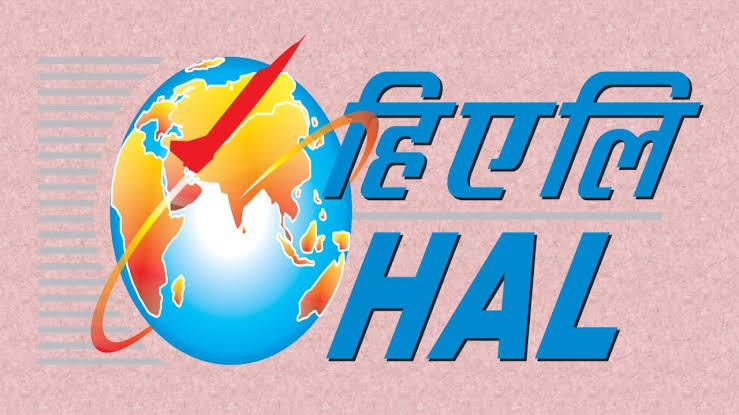HAL Employees Plan Indefinite Strike, Allege Discrimination in Workmen’s Increments

It goes without saying that Hindustan Aeronautics Ltd., or HAL, was the spine in the skeleton of the battleground between the Modi government and the Opposition during the 2019 general elections season. Everything was discussed, debated and questioned – the alleged Rafale scam, poor financial health of HAL and even its competence to produce aircraft. The media glare shifted away from HAL as soon as the elections got over. However, the problems still remain very much in place.
On Saturday, the employees of the public defence undertaking decided to go on an indefinite strike from October 14 over “discrimination” in workmen’s salaries and perks. The strike will be observed at all nine locations spread across seven states which include both production and research and development units. The strike notice is to be submitted to the management on September 30.
The strike will be led by the All India HAL Trade Unions Coordination Committee (AIHALTUCC)—an umbrella body of all the recognised HAL employees’ unions. NewsClick spoke to Surya Devra Chandrashekhar, the chief convenor of AIHALTUCC, according to whom, the management is trying to make only the workmen to bear the burden of the poor financial health of the public sector unit.
“The main contention is the difference in the salary increments of the executives and the workmen,” said Chandrashekhar, adding that, “… the workmen have been offered a 10% and 19% fitment and perks respectively as against to the executives being awarded with 15% fitment and 35% perks.”
The workmen – scale five to scale eleven employees – have demanded at par increments that has been offered to the executives.
The wage revision of the workmen is pending since 2017. Many rounds of the talks between the committee and the management have failed in reaching a consensus, in which the management has called the demand “unjustified.”
According to Chandrashekhar, who has also been part of the talks, the management is arguing that HAL’s financial position does not allow for equal increments.
The public sector aerospace major recorded a turnover of Rs. 19,400 crore—an all time high—in the previous financial year. According to a Business Standard report, this amounts to six percent revenue growth. However, the profits have remained mostly on books, as the public sector unit faces large unpaid dues from the Indian Air Force (IAF)—a major consumer of HAL. The IAF still owes well over Rs 20,000 crore. As a result, in January this year, HAL was forced to borrow money to pay salaries to its employees.
Acknowledging the financial woes of the HAL, Chandrashekhar questions the management’s decision to revise the wages of the executives then, which is to the maximum as per the recommendations of the 3rd Wage Revision Committee, a central government body.
“Why only workmen bear the brunt of a cash crunch, while at the same time, the executives enjoy full increments?” he questioned. The union had earlier criticised the Modi government for not clearing the dues to HAL, which has led to the present financial crisis.
Another issue on the table is the different time periods of the revision for executives and the workmen. The management’s reluctance to accept the demands stems from an argument that the workmen enjoyed two wage revisions in the last decade—one in 2007 and the other in 2012—whereas, the executives’ wage was revised only once in 2007 for a period of 10 years. According to the management, this arrangement ensured proper increment to the workmen.
Terming it as a “baseless” argument, Chandrashekhar explained to NewsClick that the workmen were offered “two parts of a single wage revision which were five year period each” as opposed to two wage revisions as that has been claimed.
“The workmen have not received any extra benefits from this arrangement,” he responded.
NewsClick also spoke to another HAL employee, who, on the condition of anonymity, said that the reason behind management’s position could also be the Modi government's “unsupportive attitude” towards the public sector enterprises.
“The wage revision will be for a 10-year period,” he said, “and the HAL management believes that it won’t be able to sustain the financial implications of the terms of the wage agreement given the Modi government eagerness in selling off public resources, putting financial viability of the public units in danger.”
In the first 100 days of the Modi government 2.0, routes of privatisation of major public resources were scripted, with handing over of two trains to private players and 100% FDI in coal being some of the examples.
Meanwhile, the employees’ union have also now decided to meet Union Defence Minister Rajnath Singh who is visiting HAL’s Bengaluru division tomorrow.
“We hope to seek his intervention into the matter and in case of no positive results, the employees will be forced to observe the strike,” Chandrashekhar added.
NewsClick contacted HAL’s Human Resource Director Vinay Mohan Chamola, who is also the Chairman of the wage revision committee to get management's response. He declined to offer any comments. The HAL management will respond only after receiving a strike notice, he added.
Also watch: HAL Deliberately Sidelined?
Get the latest reports & analysis with people's perspective on Protests, movements & deep analytical videos, discussions of the current affairs in your Telegram app. Subscribe to NewsClick's Telegram channel & get Real-Time updates on stories, as they get published on our website.
























